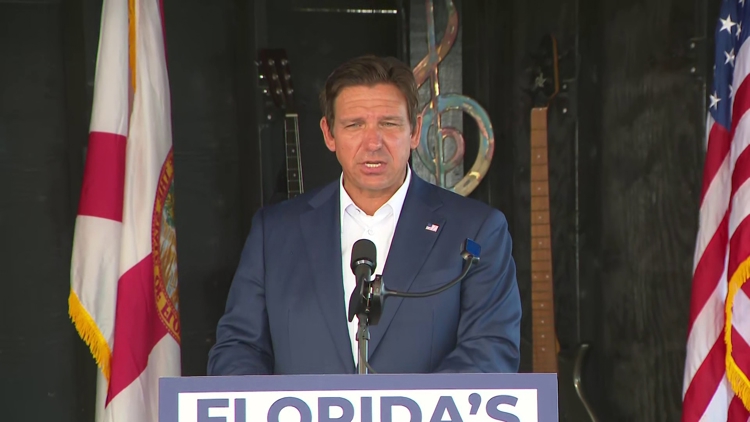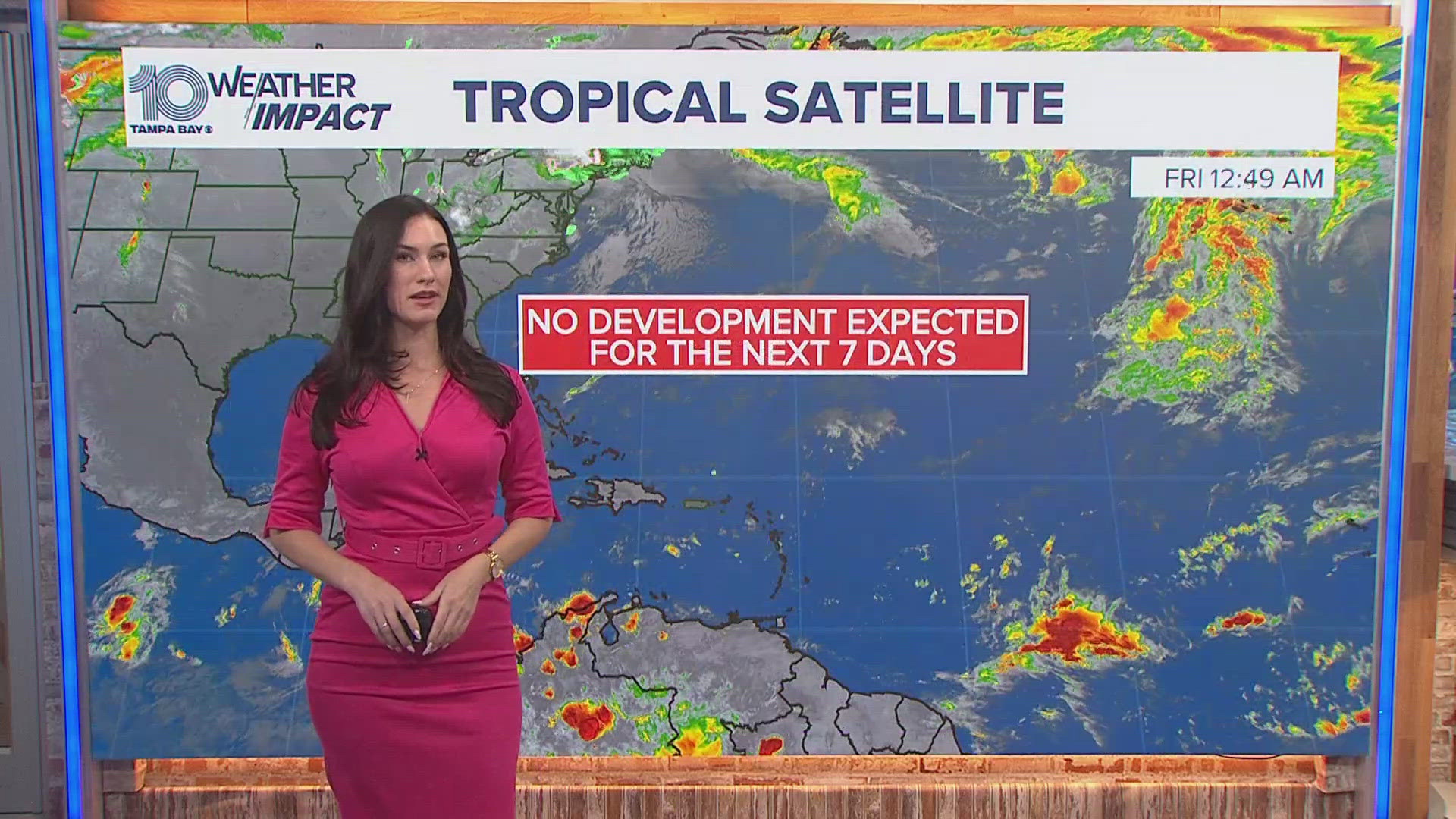ST. PETERSBURG, Fla. — Florida Gov. Ron DeSantis declared a state of emergency on Thursday ahead of a tropical disturbance that could impact much of the state this weekend.
The tropical wave, now identified as Invest 97-L, is bringing disorganized showers and thunderstorms to Hispaniola, Puerto Rico and the Virgin Islands, the governor's order says.
It has a 70% chance of developing into a tropical depression or storm over the next seven days, with the potential to bring heavy rainfall and subsequent flooding to Florida.
These storm conditions "could damage the operational capability of critical infrastructure to include major interstates and roadways, bridges, airports, schools, hospitals, power grids, and other critical infrastructure," DeSantis' memo reads.
Issuing a state of emergency allows the state to execute its emergency management plan and carry out any necessary logistical, rescue or evacuation operations.
The Florida counties under the state of emergency include Alachua, Baker, Bay, Bradford, Brevard, Calhoun, Charlotte, Citrus, Clay, Collier, Columbia, DeSoto, Dixie, Duval, Escambia, Flagler, Franklin, Gadsden, Gilchrist, Glades, Gulf, Hamilton, Hardee, Hendry, Hernando, Highlands, Hillsborough, Holmes, Jackson, Jefferson, Lafayette, Lake, Lee, Leon, Levy, Liberty, Madison, Manatee, Marion, Monroe, Nassau, Okaloosa, Okeechobee, Orange, Osceola, Pasco, Pinellas, Polk, Putnam, Santa Rosa, Sarasota, Seminole, St. Johns, Sumter, Suwannee, Taylor, Union, Volusia, Wakulla, Walton, and Washington counties.



